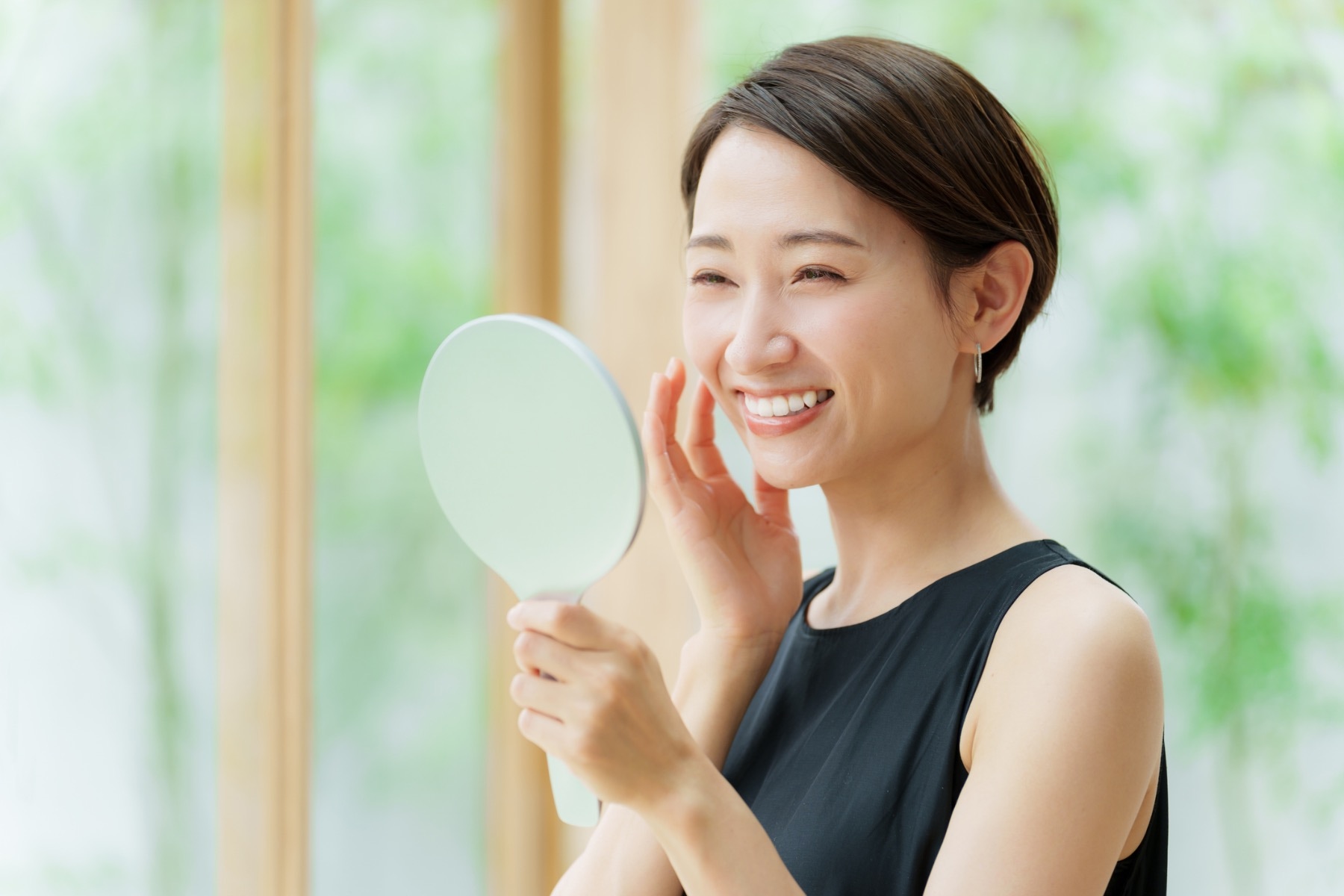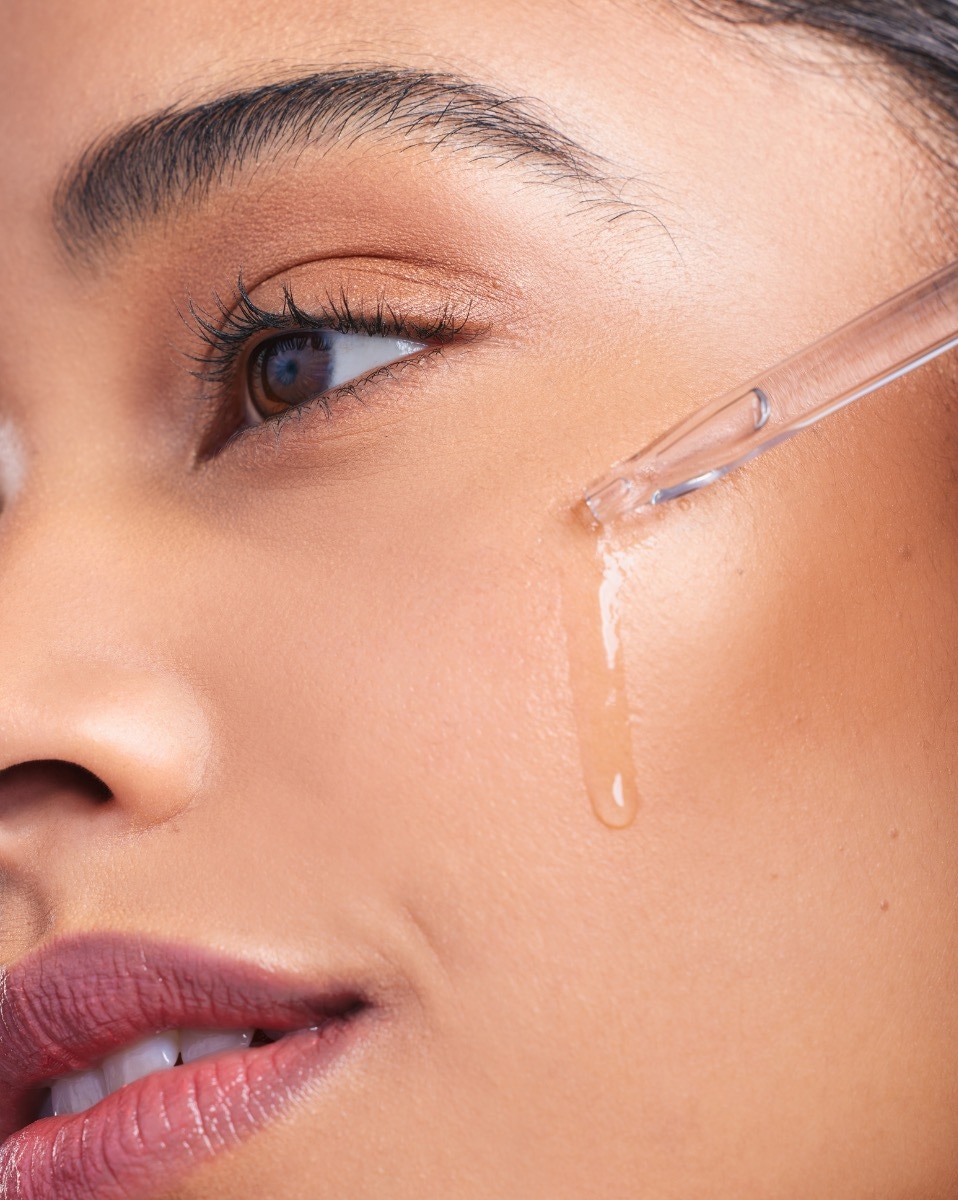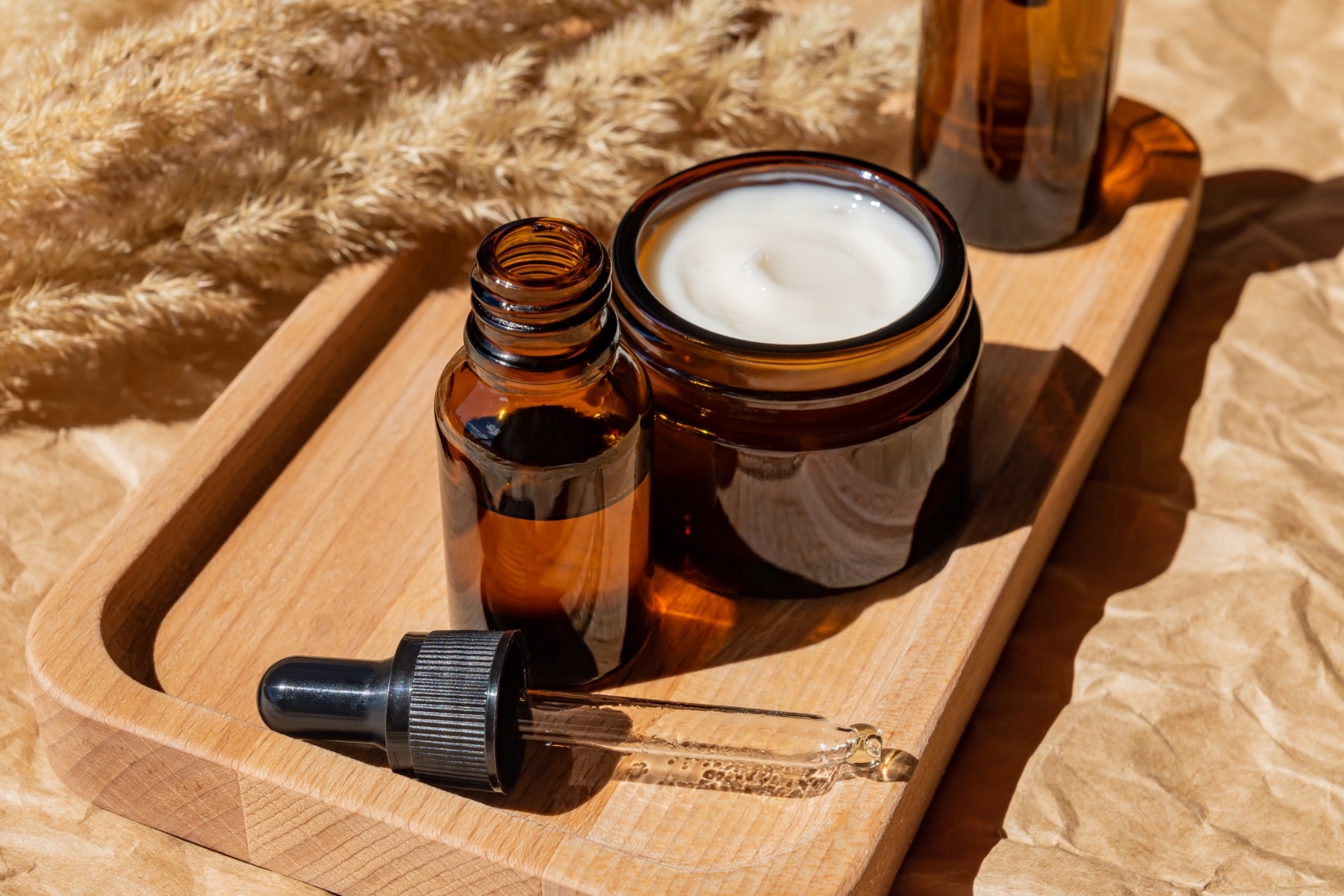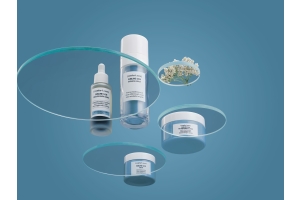Table of Contents
- What Is Skincare Serum?
- What Does Skincare Serum Do?
- What Face Serum Benefits and Side Effects Are There?
- What Is the Right Age To Use Face Serum?
- Which Serum Is Best for Aging Skin?
- What Serums Do Dermatologists Recommend?
- Do You Need Serum in Your Skincare Routine?
- Do I Need Both Serum and Moisturizer?
- Should I Use Face Serum Every Day?
- Unlocking the Power of Anti-Aging Serums
Diving into the world of anti-aging serums can feel like navigating a labyrinth of endless choices. "Decoding Anti-Aging Serums: What Works and Why" aims to simplify this journey, offering a clear, concise guide on the most effective serums for combating signs of aging.
From understanding the science behind these potent formulations to uncovering the key ingredients that make them indispensable in your anti-aging skincare routine, this article is your roadmap to making informed decisions. Discover how to revitalize your skin and achieve a timeless complexion with the right serum.
What Is Skincare Serum?
At their core, skincare serums are specialized formulations designed to penetrate deeply into the skin, thanks to their lightweight and highly concentrated nature. Unlike heavier creams or lotions, serums are imbued with active ingredients at higher concentrations, allowing for targeted action against specific skin concerns such as fine lines, wrinkles, and loss of elasticity.
The unique composition of serums means they can deliver a potent dose of anti-aging compounds like retinol, vitamin C, hyaluronic acid, and peptides directly to the skin's layers, where they can be most effective. This direct delivery system enhances the skin's ability to rejuvenate and repair, promoting a firmer, smoother, and more radiant complexion.
Incorporating a skincare serum into your daily regimen can significantly amplify the anti-aging effects of your skincare routine. With regular use, these serums not only help to slow the visible signs of aging but also work to protect the skin from future damage. This makes them indispensable for anyone looking to preserve their skin's youthful vitality and combat the natural aging process.
For those navigating the vast array of options, understanding the specific benefits and potential side effects of different serum formulations is crucial in selecting the best skincare serum for your needs. Whether addressing early signs of aging or looking for a proactive approach to skin health, incorporating a serum tailored to your concerns can offer transformative results for your complexion.
What Does Skincare Serum Do?
Addressing the question of "What does face serum do?" reveals that serums go beyond surface-level treatment. Skincare serums are formulated to provide concentrated doses of active ingredients to the skin, offering a variety of benefits depending on their specific formulations. One of the primary functions of serums is hydration. Many serums contain hyaluronic acid, a powerful humectant that attracts and retains skin moisture, helping plump and hydrate the complexion.
Additionally, serums may target specific skincare concerns, such as aging signs, hyperpigmentation, or uneven texture. Ingredients like vitamin C, retinol, and peptides are commonly found in serums designed to combat signs of aging, helping to stimulate collagen production, reduce the appearance of fine lines and wrinkles, and improve skin tone and texture over time.
Brightening serums often contain ingredients like niacinamide or vitamin C, which fade dark spots, even out skin tone, and impart a radiant glow to the complexion. These serums can help to address hyperpigmentation caused by sun damage, acne scars, or other skin conditions, resulting in a more luminous and youthful-looking complexion.
In addition to their targeted benefits, serums are prized for their lightweight, fast-absorbing textures. These allow them to penetrate deeply into the skin and deliver active ingredients where needed most, making them an ideal addition to any skincare routine, whether alone or layered with other products.
What Face Serum Benefits and Side Effects Are There?
Skincare serums have gained immense popularity in the beauty industry for their ability to deliver targeted benefits and address a wide range of skin concerns. Serums offer a versatile solution for achieving healthy, radiant skin, from hydration and brightening to anti-aging and complexion correction. Let's explore the benefits of using face serums and address potential side effects that may arise, particularly for those with sensitive skin.

Here are a few face serum benefits:
- Hydration: Serums containing hyaluronic acid or glycerin provide intense hydration, helping to replenish moisture levels in the skin and maintain a healthy barrier function.
- Anti-aging: Ingredients like retinol, peptides, and antioxidants help to stimulate collagen production, reduce the appearance of fine lines and wrinkles, and protect against environmental damage.
- Brightening: Serums containing vitamin C, niacinamide, or licorice extract help to fade dark spots, even out skin tone, and impart a radiant glow to the complexion.
- Targeted treatment: Serums can be formulated to address specific skincare concerns, such as acne, sensitivity, or uneven texture, providing customized solutions for individual skin needs.
While skincare serums offer numerous benefits, they may also have side effects, particularly for sensitive or reactive skin. Common side effects of using face serums include:
- Irritation: Some active ingredients, such as retinol or alpha hydroxy acids, may cause irritation, redness, or peeling when first introduced to the skin. To minimize the risk of irritation, it's essential to patch-test new serums and gradually introduce them into your routine.
- Sensitivity: Certain serums, especially those containing potent active ingredients, may increase skin sensitivity to sunlight. It's essential to wear sunscreen daily and avoid prolonged sun exposure when using these serums to prevent sunburn and damage to the skin.
- Breakouts: Serums may sometimes clog pores or exacerbate acne, mainly if they contain comedogenic ingredients or oils. If you experience breakouts or congestion after using a serum, discontinue use and consult a dermatologist for alternative options.
Face serums offer a multitude of benefits for skin health and appearance. However, it's essential to be mindful of potential side effects, especially for sensitive skin, and to patch-test new serums before incorporating them into your skincare routine. With proper usage and consideration of individual skin needs, serums can be a valuable addition to any skincare regimen, helping to achieve a radiant, youthful complexion.
What Is the Right Age To Use Face Serum?
Understanding the optimal timing for integrating face serums into your skincare routine is not about adhering to a strict age but instead focusing on your skin’s specific needs, which can vary significantly from person to person. The concept of the "right age to use face serum" evolves around the premise that different life stages present unique skin challenges and opportunities for care.
While there is no one-size-fits-all answer, skincare experts generally agree that incorporating serums into your routine can be beneficial as early as your twenties.

Early 20s to Late 30s - Preventative Care: In your early twenties, your skin is typically at its peak regarding collagen production and overall health. However, this is also when environmental factors like UV exposure and pollution begin to take their toll on the skin. As such, many dermatologists recommend starting a preventative skincare routine early to maintain skin health and delay the onset of aging signs.
A lightweight, hydrating serum containing antioxidants like vitamin C or green tea extract can help protect the skin from free radical damage and environmental stressors while providing essential hydration. Additionally, incorporating serums with hyaluronic acid or peptides can help support the skin's natural moisture barrier and collagen production, promoting a youthful complexion.
As you move into your late twenties and thirties, collagen production naturally begins to decline, and early signs of aging may become more noticeable. This is an ideal time to introduce serums with anti-aging ingredients like retinol, peptides, or growth factors into your skincare routine to help address fine lines, wrinkles, and loss of elasticity.
40s and Beyond - Targeted Treatment: In your forties and beyond, the focus shifts towards targeted treatment and addressing specific skincare concerns. Serums formulated with potent anti-aging ingredients can help combat more advanced signs of aging, such as deep wrinkles, sagging skin, and hyperpigmentation.
Retinol serums are particularly effective for promoting cell turnover and stimulating collagen production, helping to improve skin texture and minimize the appearance of fine lines and wrinkles. Hydrating serums containing ingredients like ceramides or fatty acids can also help replenish moisture levels in the skin, reducing dryness and promoting a plump, youthful complexion.
Considerations for Different Skin Types: While there is no specific age requirement for using face serums, it's essential to consider individual skin needs and concerns when choosing the right products. Those with oily or acne-prone skin may benefit from lightweight, oil-free serums containing salicylic acid or niacinamide to help control excess oil production and minimize breakouts.
On the other hand, those with dry or sensitive skin may prefer serums with gentle, hydrating ingredients like hyaluronic acid, glycerin, or chamomile extract to soothe and nourish the skin without irritating.
Moreover, it's beneficial to understand that as skin matures, its ability to regenerate and repair diminishes, necessitating a shift towards serums that support these functions more robustly. Each decade brings its own set of skin concerns, from the need for intense hydration and the battling of first wrinkles to more targeted treatments focusing on elasticity and deep-set lines in later years.
The essence of choosing the right serum at the right time lies in listening to your skin, observing changes, and responding with products that meet its evolving needs. Early prevention, consistent care, and adaptation to your skin's changing landscape can help maintain its health and vitality, regardless of the chronological age. This approach ensures that your skincare regimen supports your skin's journey through the years, allowing it to remain resilient, radiant, and youthful for as long as possible.
Which Serum Is Best for Aging Skin?
Choosing the right serum for aging skin involves selecting products specifically formulated to address common signs of aging, such as fine lines, wrinkles, sagging, and dullness. With many options available on the market, it's essential to understand which ingredients are most effective for combating aging and promoting a more youthful complexion.
When seeking the best serum for aging skin, it's crucial to prioritize ingredients that have been clinically proven to target and reverse the signs of aging. Some key ingredients to look for include:
Retinoids: Retinoids, including retinol and prescription-strength retinoids like tretinoin, are powerful anti-aging ingredients that stimulate collagen production, promote cell turnover, and reduce the appearance of fine lines and wrinkles. They can also help improve skin texture and tone, making them an essential component of any anti-aging skincare routine.
Vitamin C: Vitamin C is a potent antioxidant that helps neutralize free radicals, protect the skin from environmental damage, and brighten the complexion. It also plays a crucial role in collagen synthesis, making it an effective ingredient for improving skin elasticity and firmness.
Hyaluronic Acid: Hyaluronic acid is a humectant that attracts and retains skin moisture, helping plump and hydrate the complexion. It can help minimize the appearance of fine lines and wrinkles, leaving the skin looking smoother and more youthful.
Peptides: Peptides are short chains of amino acids that stimulate collagen production and promote skin repair and renewal. They can help improve skin firmness, elasticity, and overall texture, making them valuable ingredients in anti-aging serums.
Growth Factors: Growth factors are proteins that regulate cellular growth, proliferation, and differentiation. They play a vital role in maintaining skin structure and function, helping to repair damage and rejuvenate the skin. Incorporating growth factors into your skincare routine can help promote a more youthful and radiant complexion.
What Serums Do Dermatologists Recommend?
When it comes to selecting the best face serum for aging skin, dermatologists often recommend products that combine these potent anti-aging ingredients.

Products from SkinCeuticals, EltaMD, Eminence, Colorescience, Yonka, and Vivier Skin are often favoured by skincare professionals for their effectiveness, ingredient quality, and research-backed formulations. Dermatologists typically recommend products based on their active ingredients and the brand's reputation for quality. For personalized advice, it's best to consult a dermatologist.
Some top serums for aging skin include:
SkinCeuticals C E Ferulic: A daytime vitamin C serum providing environmental protection, improving the appearance of lines and wrinkles, loss of firmness, and brightening the skin's complexion.
Eminence Citrus & Kale Potent C+E Serum: This award-winning serum is celebrated for its ability to brighten the skin and improve the look of fine lines and wrinkles. Its potent formula combines stabilized Vitamin C, Vitamin E, and botanical ferulic acid, making it an excellent choice for anyone looking to combat the visible signs of aging and reduce free radical damage.
EltaMD Skin Recovery Serum: Designed for skin recovery and aligns with anti-aging interests, focusing on repairing and strengthening the skin's barrier. It's formulated with a potent mix to reduce redness, calm inflammation, and improve skin barrier function while protecting against free radicals. This dermatologist-tested serum is free from dyes, fragrances, and parabens and is non-comedogenic, embodying the approach of targeting aging with key ingredients for healthier skin.
Colorescience Pep Up® Collagen Boost Face & Neck Serum: This serum is formulated with 10 potent peptides to support collagen and elastin production, antioxidants for environmental protection, plant extracts to soothe, and hyaluronic acid for moisture retention. It's designed for all skin types but is particularly beneficial for mature skin. Within four weeks, it aims to enhance skin texture and tone, diminish wrinkles, and promote a healthy appearance.
Vivier Skin QuintiSerum™: A concentrated antioxidant serum targeting advanced signs of aging. It's enriched with 15% Vitamin C, Vitamin E, and five proprietary peptides, aiming to boost collagen production, improve skin elasticity, and strengthen the skin barrier. This serum is designed to smooth fine lines and wrinkles, hydrate, and give the skin a firmer, younger look. It suits normal to dry skin types and emphasizes a vegan, cruelty-free, hypoallergenic formulation.
Yon-Ka Paris Cellular Code Serum: This youth restorative serum reprograms the skin’s youthfulness by enhancing cellular longevity and revitalizing cellular energy. A proprietary blend of ingredients aims to make wrinkles appear smoother, skin firmer, and the complexion more radiant, emphasizing its suitability for improving the overall appearance of aging skin.
The best skincare serum for aging skin contains a combination of proven anti-aging ingredients. Consistent use of the right serum can help you achieve your anti-aging goals and maintain a radiant complexion for years.
Do You Need Serum in Your Skincare Routine?
Including a serum in your skincare routine is a topic of much debate among skincare enthusiasts and professionals alike. While some argue that serums are essential in achieving optimal skin health, others question whether they are essential. So, do you need a serum in your skincare routine? Let's explore this question in more detail.
According to dermatologists, serums' efficacy depends on various factors, including the specific ingredients they contain, the formulation of the product, and the individual's skin type and concerns. While serums can be beneficial for addressing particular skincare concerns, they are not necessarily essential for everyone.
For those with oily or acne-prone skin, a lightweight serum containing ingredients like salicylic acid or niacinamide may be beneficial for controlling oil production and reducing breakouts. On the other hand, individuals with dry or sensitive skin may benefit from a hydrating serum containing ingredients like hyaluronic acid or ceramides to replenish moisture and soothe irritation.
Whether you need a serum in your skincare routine depends on your skin type, concerns, and personal preferences. If you're unsure whether a serum is suitable for you, it's always best to consult with a dermatologist or skincare professional who can assess your skin and recommend products tailored to your specific needs.
Do I Need Both Serum and Moisturizer?
When discussing the necessity of serums, one common question is whether they can replace moisturizers altogether. While serums and moisturizers serve different purposes, they are both essential components of a well-rounded skincare routine. Serums are designed to deliver potent active ingredients to target specific skin concerns. At the same time, moisturizers are formulated to hydrate and seal in moisture to keep the skin barrier healthy and protected.

In many cases, using both a serum and a moisturizer can provide optimal results. Serums deliver concentrated doses of active ingredients that address specific skin concerns, such as fine lines, wrinkles, dark spots, or uneven texture, while moisturizers provide essential hydration and help lock in moisture to keep the skin soft, supple, and hydrated.
Should I Use Face Serum Every Day?
Face serums have become a staple in many skincare routines. However, the question often arises: should I use face serum every day? Is it beneficial, or could it potentially adversely affect the skin? Let's explore this topic to understand the advisability and benefits of incorporating face serum into your daily skincare regimen.
Using face serum daily offers several potential benefits for your skin's health and appearance. First and foremost, serums are formulated with concentrated active ingredients, such as antioxidants, vitamins, and peptides, that address specific skin concerns. Applying serum regularly provides your skin with a consistent dose of these potent ingredients, promoting optimal results over time.
Moreover, incorporating face serum into your daily routine allows for continuous hydration and nourishment of the skin. Many serums contain humectants like hyaluronic acid, which attract moisture to the skin, helping maintain hydration throughout the day. This can be particularly beneficial for individuals with dry skin and those looking to combat signs of aging.
Daily face serum can also help reinforce the skin's natural barrier function and protect against environmental stressors. Serums containing antioxidants, such as vitamins C and E, help to neutralize free radicals generated by UV radiation, pollution, and other sources, thereby reducing oxidative stress and preventing premature aging.
When deciding whether to use face serum daily, the optimal timing for application is essential. While there is no one-size-fits-all answer, many skincare experts recommend incorporating a serum into both your morning and evening routines for maximum benefits.
Applying face serum in the morning can help provide a protective barrier against environmental aggressors encountered throughout the day. Serums containing antioxidants and SPF boosters can help defend the skin against UV damage and pollution while hydrating ingredients ensure a smooth and radiant complexion under makeup.
Incorporating face serum into your skincare routine in the evening can support the skin's natural repair and renewal processes during sleep. Nighttime serums often contain ingredients like retinol, peptides, and botanical extracts, which stimulate collagen production, promote cell turnover, and diminish the appearance of fine lines and wrinkles.
So, is it good to use face serum every day? The daily use of face serum depends on your skin type, concerns, and individual preferences. Incorporating face serum into their daily skincare routine can yield significant benefits for many individuals.
However, it's essential to choose a serum that is suited to your skin's needs and to introduce it gradually into your routine to monitor for any adverse reactions. Consulting with a skincare professional can help you select the suitable serum and develop a personalized regimen tailored to your unique skin concerns.
When used correctly and consistently, face serum can be a valuable addition to your skincare arsenal, helping you achieve a radiant, healthy complexion day after day.
Unlocking the Power of Anti-Aging Serums
Delving into the realm of anti-aging serums has revealed the transformative power these potent elixirs can hold. As we've seen from esteemed brands, the right serum can be a game-changer in combating the signs of time. Embracing these advanced formulations caters to immediate skin concerns and invests in your complexion's long-term health and radiance. As our journey concludes, remember that the secret to enduring youthfulness lies in selecting a serum that aligns with your skin's unique needs, ensuring that beauty defies age.







Enter the email associated to your BeautySense account and we'll send you a link to reset your password.